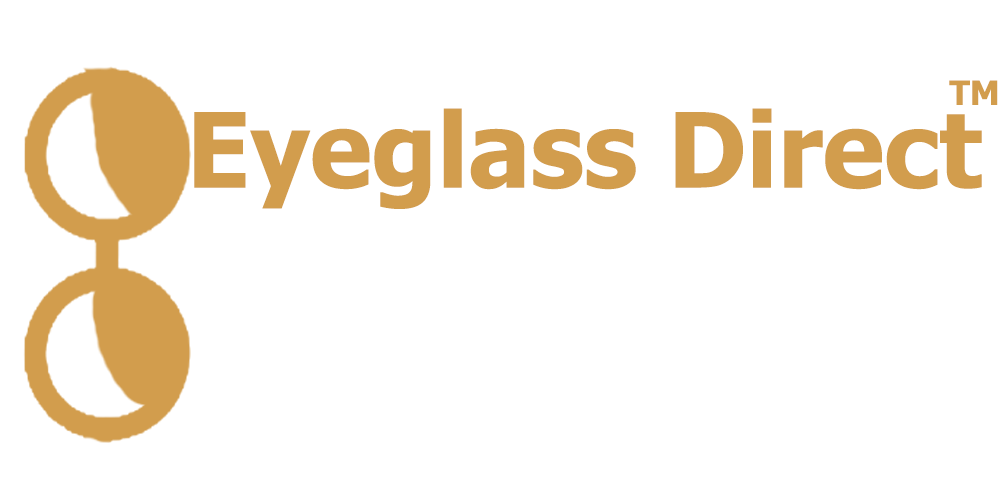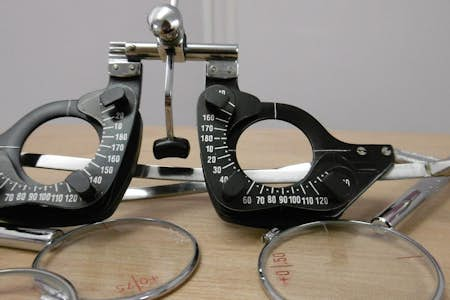Corrective vision surgery, called laser eye surgery or refractive surgery, treats myopia (short-sightedness), hyperopia (long-sightedness), and astigmatism. During the procedure, lasers reshape the cornea, improving the eye's ability to focus.
It’s a simple procedure that takes anything from a matter of seconds to just a few minutes and improves your eyesight for a lifetime. It also means that you become free from the potential limitations of wearing contact lenses or glasses.
How does laser eye surgery work?
Laser eye surgery is relatively straightforward - a highly advanced machine emits a precise laser into your eye to correct your vision. The scientific intricacies are far more complex, but we won't delve into them too deeply here!
There are a few different types of laser eye surgery. They all use lasers to change the shape of the clear layer covering the front of your eye (your cornea), but each uses a different technique.
LASIK (Laser-Assisted in Situ Keratomileusis)
LASIK is one of the most commonly used methods for laser eye surgery. Over 100,000 people in the UK opt for LASIK laser eye correction every year.
The procedure involves two lasers working together: a femtosecond laser and an excimer laser. The first laser creates a thin flap on the cornea, and the second laser reshapes it to correct the refractive error. The flap is then replaced over the cornea and will reattach within 24-48 hours. This quick procedure lasts up to 15 minutes from start to finish and provides almost immediate results.
LASIK eye surgery is effective for correcting myopia, hyperopia, and astigmatism.
Surface laser treatments
LASEK (Laser Assisted Epithelial Keratomileusis)
LASEK laser treatment is an extremely common procedure with a very high success rate. In fact, among patients with mild to moderate prescriptions, around 80% attain perfect vision.
During LASEK eye surgery, the surgeon uses a laser to remove the epithelial layer of the cornea, allowing access to the layers underneath and changing the shape of the cornea. This procedure is suitable for candidates who may have difficulties during the recovery process of LASIK, as the epithelial layer gently lifted is thinner than the flap created for LASIK. After the surgery, the epithelium is placed back over the cornea and reattaches itself.
LASEK refractive surgery is suitable for correcting short-sightedness, long-sightedness and astigmatism.
PRK (Photorefractive keratectomy)
PRK, or photorefractive keratectomy, is the oldest form of the procedure, with the first laser vision correction taking place in 1987 by Dr Stephen Trokel, MD.
In PRK, the surgeon removes the top layer of the epithelium to access and reshape the underlying cornea with a laser. The epithelium is left to regenerate naturally rather than being replaced after the surgery. The surgery typically takes about 10-15 minutes, and most people achieve a restoration of 20/20 vision within 4-8 weeks after the procedure.
PRK is suitable for correcting myopia, hyperopia, and astigmatism.
SMILE
SMILE stands for small incision lenticule extraction and is another type of laser treatment. Although relatively new, with the first SMILE laser vision correction carried out in 2011, it has over a 10-year track record, and over 2 million procedures have been carried out worldwide.
Unlike LASIK, there is no need to create a protective flap on the cornea. Instead, the surgeon operates through a keyhole, which makes the surgery minimally invasive. To begin SMILE, the surgeon numbs the eyes using anaesthetic drops and uses a pulsating laser on the centre of the cornea. This creates tiny bubbles that outline the area that needs to be removed. The laser then makes a small incision, and the surgeon removes the tissue, altering the cornea's shape and improving vision.
SMILE is only suitable for correcting short-sightedness and astigmatism, not long-sightedness.
It is important to remember that different procedures suit different people. Your optometrist or surgeon will explain which one is best for you.
Which prescriptions can laser eye treatment correct?
Nowadays, treatments are able to meet prescription requirements that were once thought impossible. Laser eye surgery can now treat:
- Up to +6.00 dioptres of far-sightedness.
- Up to 6.00 dioptres of astigmatism.
- Up to -12.00 dioptres of near-sightedness.
However, it is important to remember that these are certainly not fixed figures. Besides your prescription, many factors can affect the final treatment decision, including:
- The treatment type.
- Your eye health.
- The technology that is available at your chosen clinic.
- How experienced the surgeon is.
You must also have a stable prescription, meaning your prescription has stayed the same for at least the last two years. This is one of the main reasons laser eye surgery is usually not recommended for those under 21. Laser eye surgeons prefer to have patients reach ocular maturity before undergoing laser vision correction.
There are, however, several factors that can temporarily affect your prescription. For example, having diabetes can cause fluctuations in your prescription. In these cases, speaking to your ophthalmologist/specialist optometrist is best to determine the best next steps for you.
Is laser eye surgery safe?
Laser eye surgery treatment is very safe. Although people presume that wearing contact lenses is safer than refractive surgery treatment, researchers have argued that infection may be eight times higher with lifetime daily contact lens use compared with (LASIK).
The laser eye treatment procedure has become safer and more effective as technology and medicine have improved, which is proven by the number of people opting to have laser treatment; over 30 million people have had the procedure carried out worldwide so far, and in the UK, more than 120,000 patients choose to undergo laser eye surgery every year.
Naturally, like with all surgeries, it's important to keep in mind that there are potential risks involved with lens surgery. The risks that eye surgical procedures carry include the following:
- Dry eyes: Many patients experience temporary dryness and discomfort in their eyes after the surgery. However, you can use moisturising eye drops to relieve this symptom.
- Under correction or over correction: While laser eye surgery aims to correct vision to the desired level, the procedure may not achieve the intended outcome. This could lead to residual vision problems requiring further treatments or corrective lenses.
- Visual aberrations: Some patients may experience visual disturbances such as halos, glares, starbursts, or double vision, especially in low-light conditions. These aberrations can affect night driving and other low-light situations.
- Pain or discomfort: Some patients may experience pain, discomfort, or a foreign body sensation during the healing process.
- Infection: As with any surgery, there's a risk of infection. While modern techniques and sterile environments minimise this risk, it's still possible.
- Regression: Over time, the effects of the surgery might diminish, requiring additional procedures to maintain optimal vision correction.
Although reading these risks may make laser eye surgery sound scary, you should keep in mind that there is less than a 1% chance of serious complications. Complications with surgery often occur when the patient is not a suitable candidate for the procedure, so you must see a qualified and experienced surgeon who can advise you appropriately.
What happens during laser eye surgery?
Before the surgery
The laser eye surgery procedure begins with an initial consultation with an eye surgeon or an ophthalmologist specialising in laser eye surgery. This consultation usually takes place a few months before your procedure where the surgeon will thoroughly assess your eye health, evaluate your prescription, examine the shape and thickness of your corneas, and discuss your medical history, including any existing eye conditions or other health issues.
Based on the assessment, the surgeon will discuss whether you are a suitable candidate for laser eye surgery and which specific procedure (e.g., LASIK, PRK) might be most appropriate for your needs. They will also discuss the surgery's potential risks, benefits, and alternatives with you. It's important to clearly understand what to expect and address any concerns you may have.
If you wear contact lenses, you need to refrain from wearing them for two weeks before the surgery. The surgeon will also ask you to sign an informed consent form indicating that you understand the procedure's risks, benefits, and potential complications.
During the surgery
The exact steps taken during laser eye surgery will vary based on the specific technique and technology used; however, the guidance below applies to all types of laser eye treatments.
During all laser eye surgery procedures, you will remain awake. Many people question, 'Will laser eye surgery hurt?' but the anaesthetic eye drops prevent you from feeling any discomfort during the surgery.
Once in the treatment room, the surgeon will clean your eyes before they are held open with a speculum while performing the laser surgery.
During the short time the surgery takes, the surgeon will ask you to stare at a fixed spot and not move your eyes. If you do move by accident, don't worry! All the lasers have a sensor that recognises even minuscule movements and makes them stop immediately.
After the surgery
After the surgery, you are likely to spend a short period in a recovery area. You might experience some blurriness and discomfort during this time. To help your eyes start healing, it's best to rest and keep them closed for a while.
You will see your eye surgeon for a checkup within a couple of days of your laser eye surgery. They'll look at your eyes to ensure everything's going well and there are no immediate issues. You might notice changes in your vision and blurriness during the first days or weeks after surgery. But don't worry; as your eyes heal, your vision will improve.
Your surgeon will guide you on when to resume regular activities like driving, exercising, and screen use. The timing depends on your procedure and healing progress. Vision stabilisation might take a few weeks to months, but many people achieve significant improvement close to their desired prescription.
It is important to note that even after your eyes have stabilised, having a regular eye test is essential to monitor your eye health and address any potential issues that may arise over time.
How long does laser eye surgery take to heal?
The healing process after laser eye surgery can vary from person to person and also depends on the specific procedure you've undergone. It's important to diligently follow your surgeon's postoperative care instructions to promote proper healing. This might include using prescribed drops, avoiding rubbing your eyes, wearing protective eyewear (not contact lenses), and attending all follow-up appointments.
Remember that each person's healing timeline can differ, and some might experience a quicker or slower recovery. If you have any concerns about your healing process or experience unusual symptoms, don't hesitate to contact your surgeon for guidance.
How much does laser eye surgery cost?
Laser treatments vary greatly in price depending on the type of laser eye surgery performed, how intense the refractive error you wish to correct is, and the location/private clinic you want to carry out the procedure.
Scheduling consultations with reputable surgeons is advisable to discuss your readiness for the procedure, obtain accurate pricing tailored to your needs, and compare clinics and surgeons to determine the one you feel most comfortable with. Ensure the quoted costs include initial consultations, follow-up visits, and additional treatments.
Laser eye surgery for correction of long-sightedness and short-sightedness isn't usually available on the NHS or typically covered by private health insurance. This means that you will most likely have to cover the laser eye surgery cost yourself.
Is laser eye surgery for me?
As we age, the decision to undergo laser eye surgery has a unique significance. Beyond the immediate benefits of improved vision, it's crucial to consider how age-related changes might influence the outcomes. Research indicates that while it can be highly effective for correcting vision, we should consider factors such as the natural ageing of the eye's lens and potential shifts in prescription over time.
The field of laser eye surgery has seen exciting progress in recent years, especially for those in their golden years. These innovations cater to specific needs, addressing concerns like presbyopia and age-related dryness.
Even those previously deemed unsuitable may now be able to achieve impressive results and enjoy life with fantastic vision!
Image Credit: cottonbro studio at Pexels








